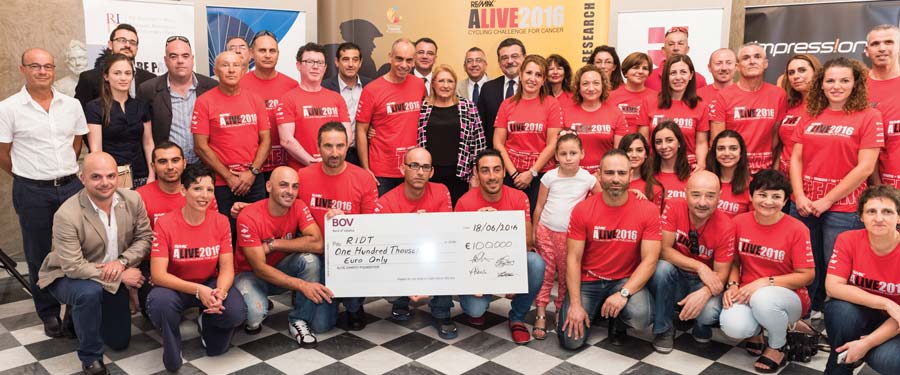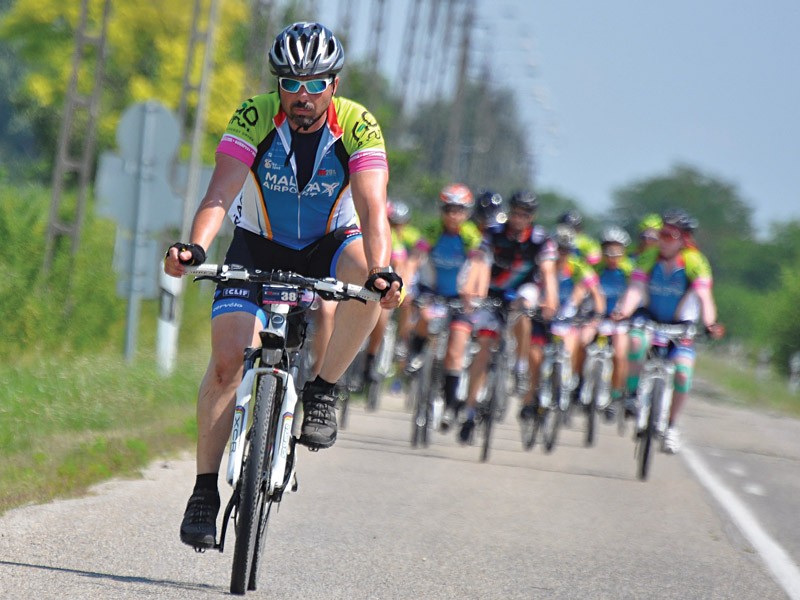From its very inception, the University of Malta Research Innovation and Development Trust (RIDT) aimed to catalyse a societal culture change—to see funding for research and innovation receiving broad-based and sustained support, as well as donations from large corporate donors. Indeed, a few productive years later, a silent revolution is gaining momentum as Maltese society embraces this concept.
To underline this shift, there couldn’t have been a more significant donor than the Malta Community Chest Fund (MCCF). The MCCF, under the patronage of the President of the Republic, is considered by many to be the people’s philanthropic saving pot, the national piggy bank for good causes. It raises funds through its relentless campaigning and public generosity. Following in the steps of her predecessors, the current President, H.E. Marie-Louise Coleiro Preca, has taken this endeavour to new heights with L-Istrina, the yearly telethon fundraiser which hit the €5.5 million mark in 2016.
In December 2014, following an invitation by RIDT’s CEO Wilfred Kenely, The President visited the University of Malta’s research facilities and was shown some of the world-class research projects in areas such as breast cancer, brain-computer interfacing, and kidney disorders. Following that visit, the RIDT engaged with the Office of the President to identify research projects that would be supported by the Malta Community Chest Fund.
The first project to be funded was a study in the genetics of osteoporosis. Dr Melissa Formosa (Faculty of Health Sciences) is leading this project which, having conducted studies on animal models, is looking at Maltese families with members affected with osteoporosis in a bid to to determine whether genetic factors also increase susceptibility to this bone disease.
The President’s commitment has been re-endorsed with the signing of an agreement to finance a three-year National Eye Study to the tune of €132,000. The project investigates the incidence of eye disorders such as glaucoma and cataracts across the Maltese population. To date there is no reliable data available on blindness and common eye diseases. Led by ophthalmic surgeon and visiting senior lecturer Francis Carbonaro (Faculty of Medicine and Surgery), the project will be gathering data from 1% of the Maltese population aged between 40 and 80. The goal is to determine both age and sex-specific prevalence, and the cause of blindness and visual impairment in adults.
In her message to the RIDT, the President of the Republic spoke of her ‘distinct honour and great privilege to offer the full support of the Republic of Malta to the Research Trust. My office is committed to help achieve the aspiration and values we share with the Research Trust to create sustainable economic growth as a means to social development and prosperity.’
The Malta Community Chest Fund has chosen to invest in medical research conducted within the University of Malta. In doing so, it is not only supporting the quest for research-based solutions to our daily challenges, but also sending a clear message to the Maltese community—investment in research pays.




